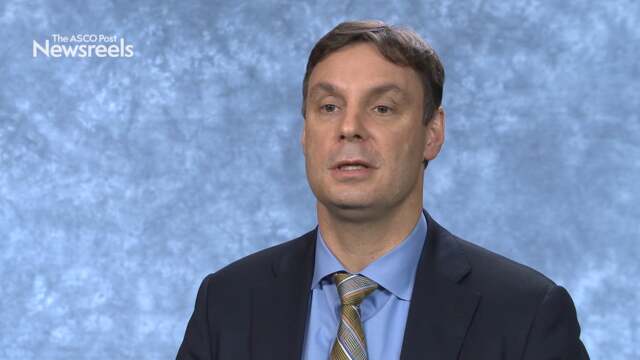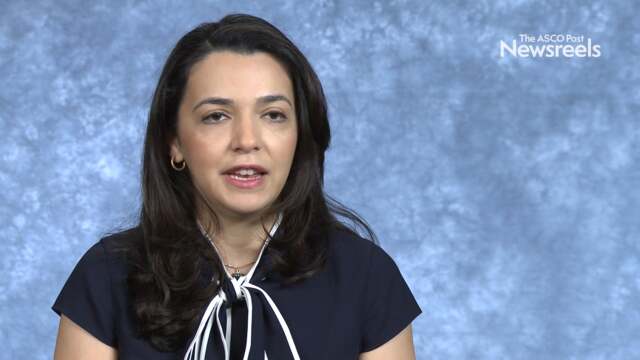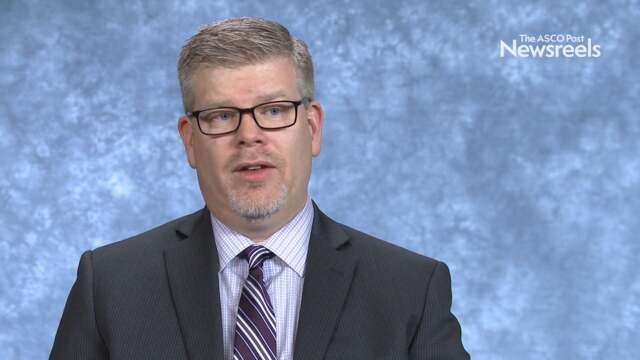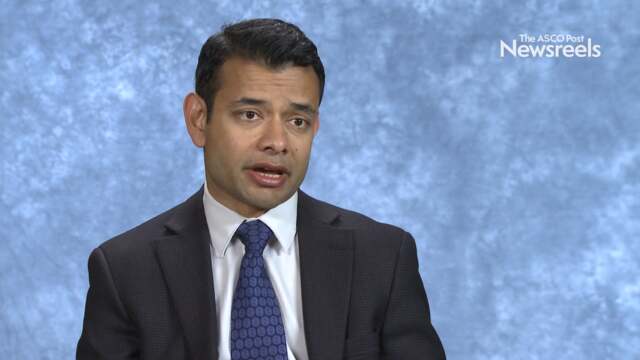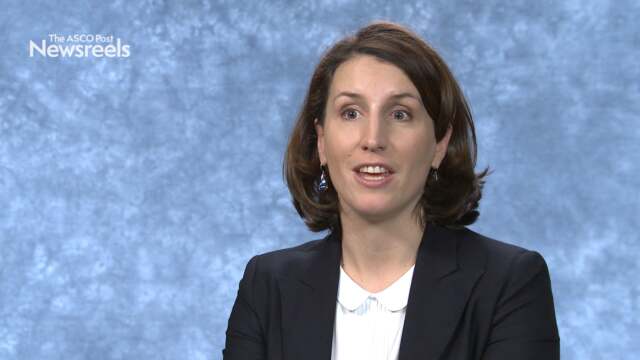Daniel J. George, MD, on RCC: Results From the Alliance A031203 CABOSUN Trial
2018 Genitourinary Cancers Symposium
Daniel J. George, MD, of Duke University Medical Center, discusses study findings on cabozantinib vs sunitinib for previously untreated patients with advanced renal cell carcinoma of intermediate or poor risk, in a subgroup analysis of progression-free survival and objective response rates (Abstract 582).
Daniel J. George, MD, of Duke University Medical Center, discusses phase III findings on adjuvant sunitinib in patients with high-risk renal cell carcinoma, in an exploratory pharmacogenomic analysis (Abstract 576).
Fatima Karzai, MD, of the National Institutes of Health, discusses phase II findings on olaparib and durvalumab in metastatic castration-resistant prostate cancer in an unselected population (Abstract 163).
Gregory R. Pond, PhD, of McMaster University, discusses a new six-factor prognostic model for patients with advanced urothelial carcinoma receiving post platinum atezolizumab (Abstract 413).
Sumanta K. Pal, MD, of the City of Hope Comprehensive Cancer Center, discusses phase III study findings from IMmotion151, which looked at atezolizumab plus bevacizumab vs sunitinib in untreated metastatic renal cell carcinoma (RCC), and results from a safety and efficacy trial of axitinib in combination with pembrolizumab with advanced RCC (Abstracts 578 & 579).
Laurence Albiges, MD, PhD, of the Gustave Roussy Cancer Centre, discusses study findings on the safety and efficacy of nivolumab in metastatic renal cell carcinoma (Abstract 577).
